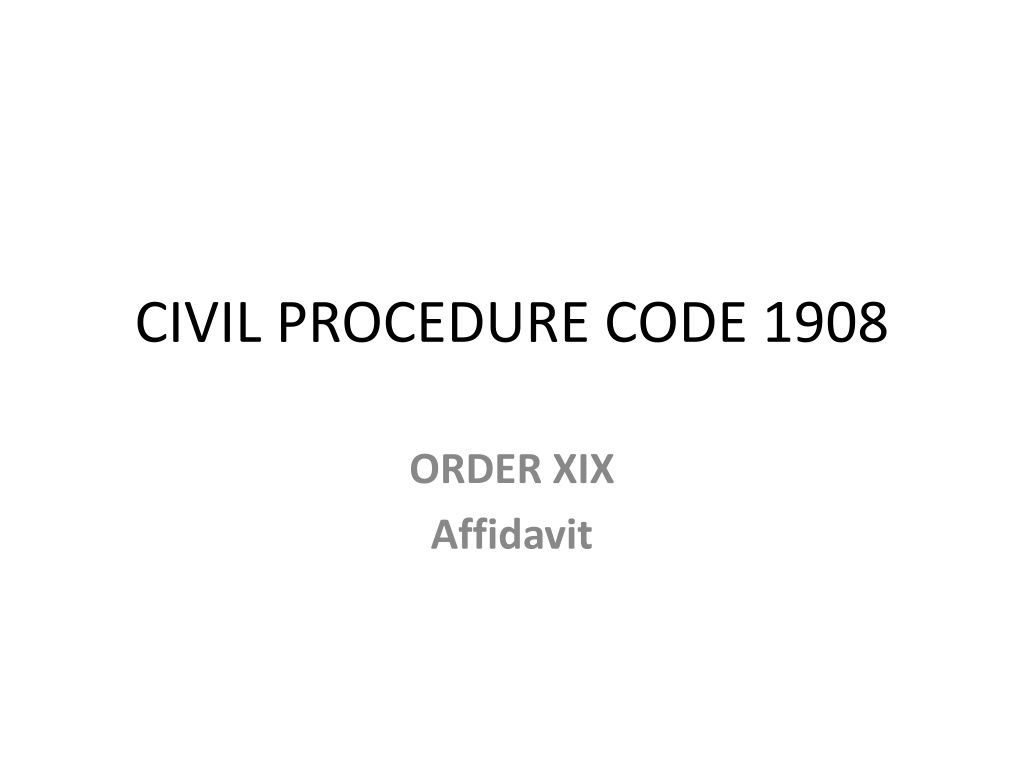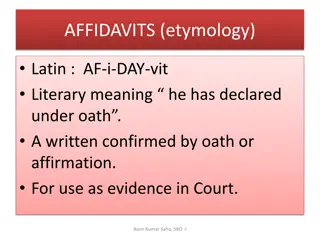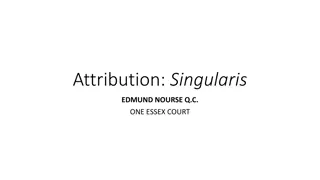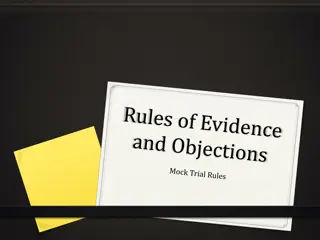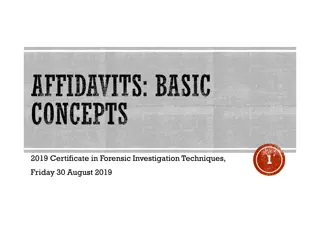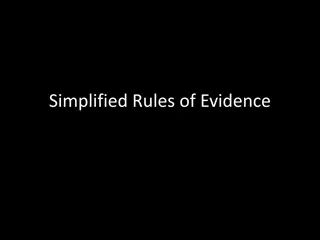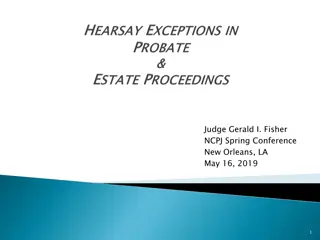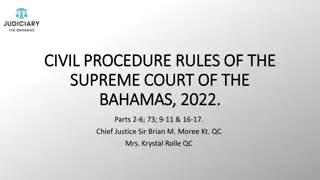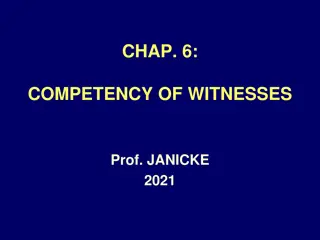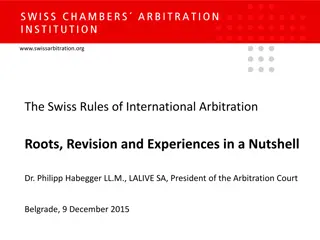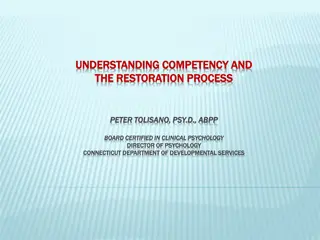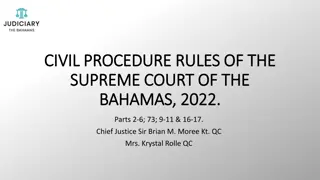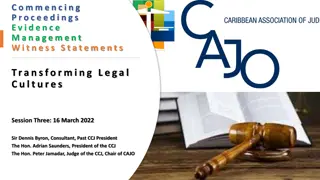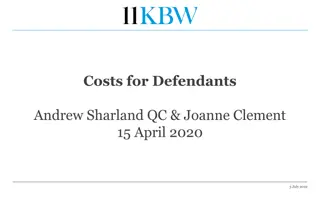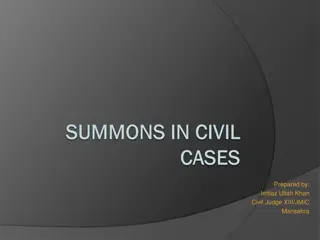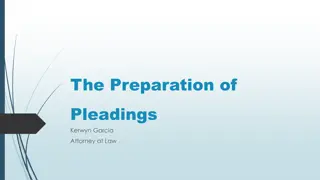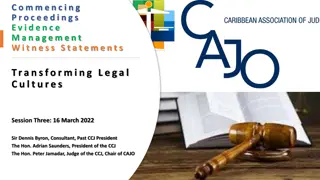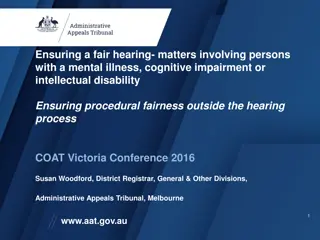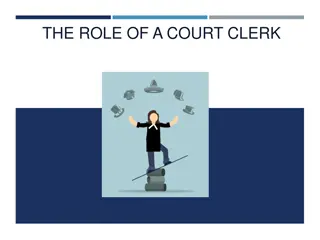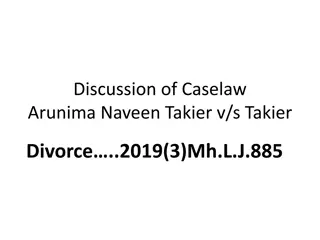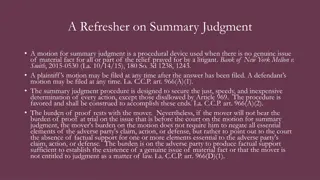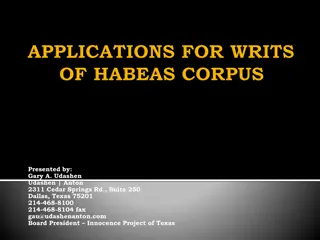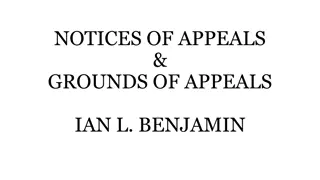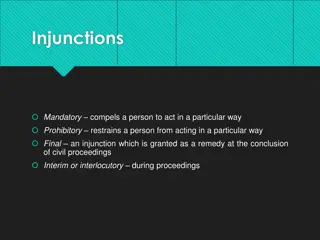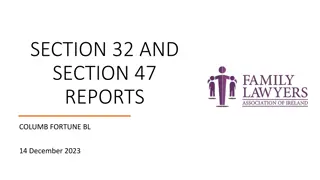Understanding Affidavits: Rules and Relevance in Legal Proceedings
Affidavits play a crucial role in legal proceedings, especially in matters involving Income Tax authorities. Governed by Order XIX of the CPC 1908, affidavits must adhere to specific rules, such as being confined to provable facts and being sworn before an authorized officer. They are essential for presenting evidence and making declarations before the court.
Download Presentation

Please find below an Image/Link to download the presentation.
The content on the website is provided AS IS for your information and personal use only. It may not be sold, licensed, or shared on other websites without obtaining consent from the author. Download presentation by click this link. If you encounter any issues during the download, it is possible that the publisher has removed the file from their server.
E N D
Presentation Transcript
CIVIL PROCEDURE CODE 1908 ORDER XIX Affidavit
Relevance of affidavit to the Income Tax Officials Sometimes Income Tax authorities are required to file affidavits before the appellate authorities like ITAT, HC and SC. Sometimes, counter affidavit is required to be filed.
What is affidavit ? Procedure dealing with affidavits laid down under Order XIX of CPC 1908 which contains three rules. Rule-1 :deals with power to order any point to be proved by affidavit. Court may permit a party to file an affidavit to adduce evidence at any time. It is at the time of filing of plaint, written statement or at the time of framing of issues.
Rule-2 prescribes power to order attendance of deponent for cross examination. Rule-3: Affidavits shall be confined to facts as the deponent is able to prove out of his own knowledge, except on interlocutory petitions on which statements of his belief may be admitted. The cost of affidvait containing hearsay or of argumentative matter be paid by the deponent if court so directs. It must not relate to inferences.
Essential attributes of an affidavit Affidavit is the declaration made by a person. It must be in writing and must be in first person. It must have been sworn or affirmed before magistrate or any other authorized officer. It must be signed by deponent.
Affidavit filed in reply to interrogatories to be filed within 10 days of the order. The aggrieved party can neither cross examine nor adduce any evidence to contradict it, as it is a conclusive proof. Affidavit has no evidentiary value and not recognised by the Indian Evidence Act.
